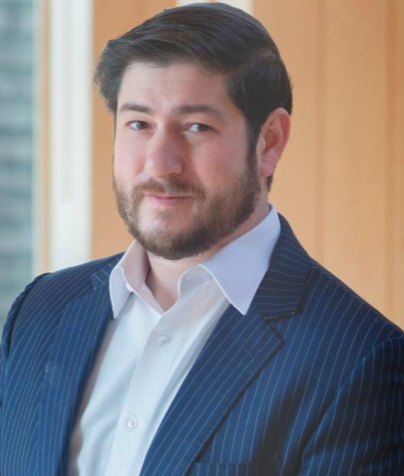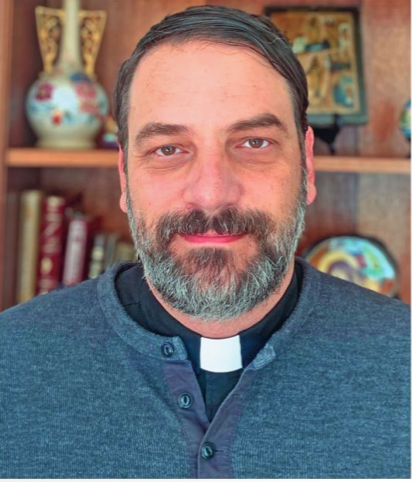Hamptons Soul: The Shadow Pandemic of Mental Health

Rabbi Josh Franklin of the Jewish Center of the Hamptons and Father Constantine Lazarakis of the Dormition of the Virgin Mary Greek Orthodox Church of the Hamptons discuss the shadow pandemic of mental health.

Rabbi Josh Franklin
While our country seems focused on the COVID-19 pandemic, a shadow pandemic has been ravaging millions of individuals. COVID has exacerbated an already prevalent mental health problem. Record numbers of Americans have reported symptoms of anxiety and depression during the pandemic. There has also been an increase in Americans reporting stress, loneliness and an overall feeling of languishing.
You are not alone if you are struggling with a mental health issue. Yes, a stigma about mental health still pervades our culture. But remember, even the greatest of our biblical ancestors struggled with their mental health. From Moses, who cries out to God about the emotional anguish and burden of leadership (Numbers 11:14- 15), to the prophet Jonah who sinks into deep despair (Jonah 4:3) and King David, who in his book of Psalms declares: “From the lowest depths, I call out to you (Psalm 130:1).” Mental health issues can be debilitating, but there are resources that can help you.
A profound debate in the Talmud, one of the great books of Jewish wisdom, offers us some sage advice amidst this mental health crisis. The rabbis of old argue over the meaning of the proverbial verse: “If there is anxiety on a person’s mind, then they should quash it (Proverbs 12:25).” On the one side, Rabbi Asi says we should take this at face value and simply dispel our negative thoughts or bottle them up. Offering a contrary opinion, Rabbi Ami teaches that we might understand the proverbial wisdom differently.
Instead of quashing our anxieties, we should instead vocalize them. That is, when we talk about our mental ailments, we begin to quell them. While general human tendency is to listen to Rabbi Asi and attempt to bottle up our emotions, mental health professionals will universally advise in line with Rabbi Ami. One of the best ways for us to navigate the ballooning mental health crisis is for us to talk about it communally, and for each of us to find outlets to process our emotions with a professional or someone whom we trust.

Father Constantine Lazarakis
The weather is getting warmer, the sun shining a little brighter, and life on the East End, after more than a year of the coronavirus, is feeling a little closer to normal. Mass vaccinations are certainly mitigating the risk. Still, we are wearing our masks, and the carefree days of overcrowded restaurants, densely populated movie theaters and crammed retail spaces seem more like an alternate reality than a distant memory. Our world has changed so much over the past year.
While it is easy to enumerate the physical ways in which the pandemic has changed our lives, (i.e., masks, physical distancing, temperature checks at the door), it is a little more difficult to come to terms with the impact they have had on us socially, spiritually and psychologically. The pandemic has simultaneously made us more acutely aware of our vulnerability and forced us into varying degrees of isolation. Naturally, many of us are experiencing increased levels of anxiety and depression.
God created us as social beings. We are at our best when we give and receive love. In the book of Matthew, Christ teaches that the two most important commandments are both commandments of love. Namely, to love God and to love your neighbor. It is love that allows us to transcend uncertainty. It is love that allows us to make sense of our vulnerability, even our mortality. So, the pandemic has been a double whammy, accentuating our vulnerability and limiting the normal ways by which we access community, social connection…love.
We all need to look out for one another, and we all need to reach out to one another. The pandemic has changed a lot, but it hasn’t changed that fact that we need each other. Please take the time and find a way to give and receive some love.
If you are in crisis, don’t hesitate to reach out to any of these hotlines:
Suffolk County Mental Health Information Hotline & Mobile Crisis Team
631-952-3333
National Suicide Prevention Lifeline 24-hour access:
1-800-273-8255 (TALK)
TTY: 1-800-799-4889 (4TTY)
suicidepreventionlifeline.org
Response Hotline 24-hour access:
631-751-7500
responsecrisiscenter.org
Free Crisis Counseling
English & Spanish
Crisis hotline
Support hotline
Online chat crisis counseling
Runaway hotline



